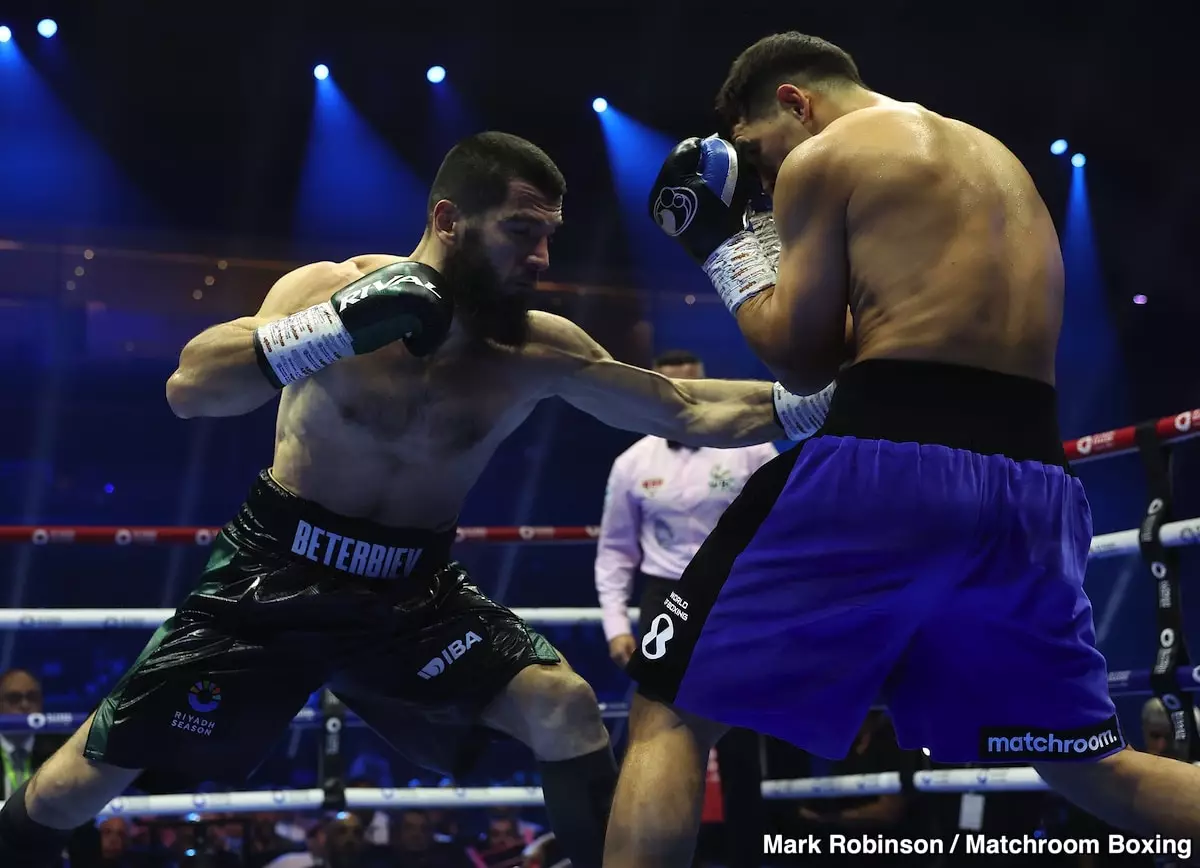In the world of professional boxing, where the battle of wills meets physical prowess, fighters often find themselves navigating complex strategies to secure victory. A recent statement from former champion Sergio Mora has ignited a conversation about the ethics of “aging out” opponents, specifically in the case of rising star David Benavidez and undisputed light heavyweight champion Artur Beterbiev. At almost 40 years old, with a record of 21 wins and 20 knockouts, Beterbiev’s age raises questions about his viability in the ring against younger, strong contenders like Benavidez, who currently holds a 29-0 record with 24 KOs under his belt.
Understanding the Concept of ‘Aging Out’
The term “aging out” in boxing refers to the phenomenon where younger fighters wait for a champion to decline in performance due to age before attempting to challenge them. Mora suggests that Benavidez may benefit from this strategy by delaying a potential fight with Beterbiev, thereby increasing his chances of victory as Beterbiev ages further into his forties. Although this tactic can seem shrewd, it also invites criticism regarding fairness and sportsmanship. In a sport that celebrates courage and skill, waiting for an opponent to become less capable raises ethical questions and could tarnish a fighter’s reputation if perceived as cowardice.
Historically, many champions have faced challengers who were past their prime. Icons of the sport have successfully navigated this fine line, but critics argue that this approach undermines the integrity of boxing as a competitive endeavor. Mora’s remarks suggest that he champions the notion of facing opponents at their best, hinting that a true champion should not rely on age to turn the tide but rather on skill and strategy within the ring.
For Benavidez, the decision to postpone a potential showdown with Beterbiev may seem pragmatic. However, this strategy is fraught with risks. Firstly, it could lead to missed opportunities. The boxing landscape is notorious for its volatility; fighters rise and fall, injuries can sideline individuals, and titles can change hands unexpectedly. By waiting too long, Benavidez could find himself unprepared or even outclassed by a new wave of talent when the time comes to step into the ring with Beterbiev.
Moreover, waiting for an opponent to age could also paint the fighter as apprehensive. The perception that Benavidez fears battling Beterbiev at his current age could potentially harm his marketability and legacy. Fans and analysts often scrutinize fighters who appear hesitant to face elite competition when the stakes are highest.
Mora emphasizes the significance of timing in boxing, particularly when it comes to conditioning and technique. He suggests that Beterbiev, a fighter known for his powerful brawling style at close range, presents a significant risk for Benavidez. Every fighter has their peak period, and understanding when to approach a challenge can be crucial in achieving success. Beterbiev’s current form, coupled with his aggressive approach in the ring, poses a legitimate threat, and Mora’s insights reflect a keen awareness of these dynamics within the sport.
The upcoming rematch between Beterbiev and Dmitry Bivol scheduled for February is also a pivotal moment that could shape Benavidez’s strategy. If Bivol emerges victorious, opinions may shift on the perceived danger Beterbiev poses. This unpredictability makes the realm of boxing not only a test of physical skill but also a mental game of timing and decision-making.
While the approach of aging out an opponent can be seen as a strategic maneuver within boxing, it raises significant ethical and competitive implications. The discussion surrounding David Benavidez and Artur Beterbiev underscores the nuanced realities that fighters face in their careers. Ultimately, the true measure of a champion lies not just in their ability to strategize but in their willingness to face challenges head-on—regardless of age. As the boxing community awaits the results of upcoming matches, the dialogue surrounding aging and competition will undoubtedly continue to evolve.


Leave a Reply